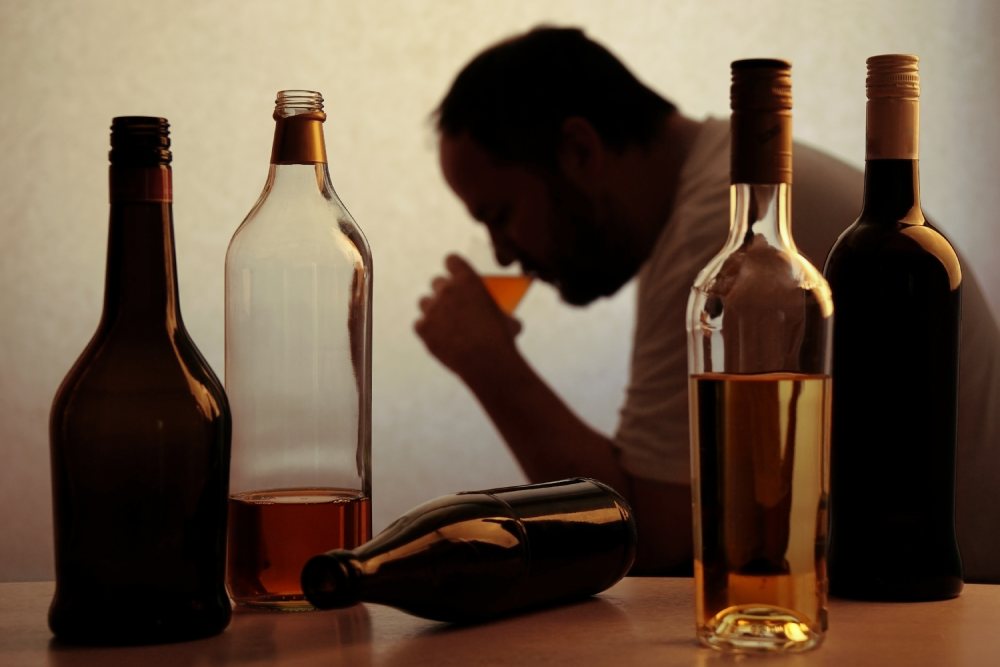Alcohol use disorder, or alcohol addiction, is the chronic and excessive consumption of alcoholic beverages. It encourages the user to continue drinking, even if it causes significant problems in life, especially when it comes to relationships with family and friends.
Destructive alcohol use puts not only your relationship with your loved ones in jeopardy but also your overall health. Some health consequences you’ll most likely experience due to alcohol use disorders ranging from heart disease, liver failure, stroke, cancer, to a weakened immune system.
Besides that, alcohol use disorder may increase the risk of having mental health conditions that can coexist with your addiction. It includes depression, anxiety, post-traumatic stress disorder (PTSD), eating disorders, and more. This condition is called dual diagnosis or co-occurring disorder.
But how would you know if you or a loved one has chronic alcohol intake? This post may help you answer that question. Below are the signs and symptoms that will tell you if you or a loved one is suffering from an alcohol use disorder. Read on to learn more.
If you or a loved one is experiencing alcohol use disorder, seek professional help right away. Reach out to any local rehab facility in your area. Plus, you may visit online resources like jackson house rehab and others for helpful information.

Table of Contents
Experiencing Alcohol-Induced Blackouts
What happens to you when you get excessively drunk? Does your memory still serve you well? If not, you’re probably experiencing alcohol-induced blackouts.
Alcohol-induced blackouts may be common, but not if you’re a chronic drinker. They’re one of the signs that tell you to have problematic alcohol use. They’re memory gaps pertaining to events that happened while you were under the influence of alcohol too.
Drinking a certain level of alcohol will cause blackouts, preventing your brain from transferring acquired memories to long-term storage. This process is also called memory consolidation, and it occurs in a specific area of your brain called the hippocampus.
If you see someone passing out due to excessive alcohol use, call an emergency hotline (911) for help immediately.
Being Unable To Reduce Alcohol Intake
Do you want to stop drinking alcohol, but you always end up grabbing another bottle or glass? It’s important to understand that it’s not your fault if you always fail to cease drinking alcohol. A part of your brain has been hacked and controlled by the same alcohol you drink.
If you’re someone with an alcohol use disorder, you’ll notice that your cravings are increasing day by day. That’s because alcohol is chemically altering your brain functions due to chronic drinking that pushes you to drink more.
For example, when you drink too much, your brain will produce and release dopamine—a chemical responsible for making you feel great and relaxed. This makes quitting alcohol more challenging.
If you want to quit drinking alcohol, talk with your doctor and ask for help instead of doing it all by yourself. Also, this will help you avoid withdrawal syndrome due to excessive alcohol intake (see the next section for more information).
Experiencing Withdrawal Syndrome
Withdrawal syndrome occurs when a person suddenly stops using substances, whether a drug or alcohol. It causes a series of adverse bodily reactions that can be dangerous to one’s health sans the supervision of a medical professional.
If you quit drinking alcohol at once and start experiencing symptoms, you’re probably positive for alcohol use disorder. Why? The withdrawal syndrome is more likely to occur in someone with chronic substance use than in occasional drinkers.
Here are the usual symptoms of withdrawal syndrome:
Can you avoid experiencing withdrawal syndrome in the process of quitting alcohol? Your doctor may help you with that. They might prescribe you a set of medications to reduce or alleviate some symptoms of withdrawal syndrome.
So, instead of quitting all by yourself, consult your doctor and receive the help you need to overcome alcohol use disorder safely.
Inability To Fulfill Responsibilities
If you’re a chronic drinker, you’ll find it difficult to fulfill your responsibilities as an employee, a student, or others. That’s because your mind is under the influence of alcohol or is too preoccupied with thoughts of getting another round of drinks.
Don’t worry because that’s not your fault, although it’s your decision to consume alcohol in the first place. Your brain is being altered and controlled by alcohol, which encourages you to drink more of it.
Even your hobbies can also be affected by your chronic alcohol intake. You might find yourself giving up doing some activities you actually loved before so you can have another glass or bottle of alcohol.
If you notice these lifestyle changes, seek professional help as soon as possible. Your doctor will help you take your life back so you can do the things you need and want once more.
Drinking Alcohol In Unsafe Situations
Chronic alcohol users often drink even in most life-threatening situations. For instance, they know that they’ll be driving yet still insist on having a drink because they feel the need to do so. If alcohol prevents you from making good decisions, you’re positive for alcohol use disorder.
Such situations might persist and put your life at great risk. Therefore, it’s in your best interest to seek help as soon as possible to reduce the likelihood of getting severely injured.
Developing Mental Health Illnesses
Those with alcohol use disorders have a higher chance of developing a mental health condition because they’re more vulnerable to negative changes. For example, chronic drinkers may easily get depressed or traumatized after experiencing a devastating or traumatic event.
Treating both alcohol addiction and mental illness is more challenging. It often requires an integrated treatment plan, which can be more expensive than treating addiction alone. So, don’t wait for yourself to experience co-occurring conditions and get yourself treated immediately.
In Summary
Alcohol use disorder is chronic and problematic use of alcoholic substances. It often causes a great deal of damage to both physical and mental health.
Seeking immediate medical treatment is extremely important when dealing with alcohol use disorder. With this, you’ll be able to reduce the signs and symptoms discussed above and free yourself from the tight grip of addiction.

